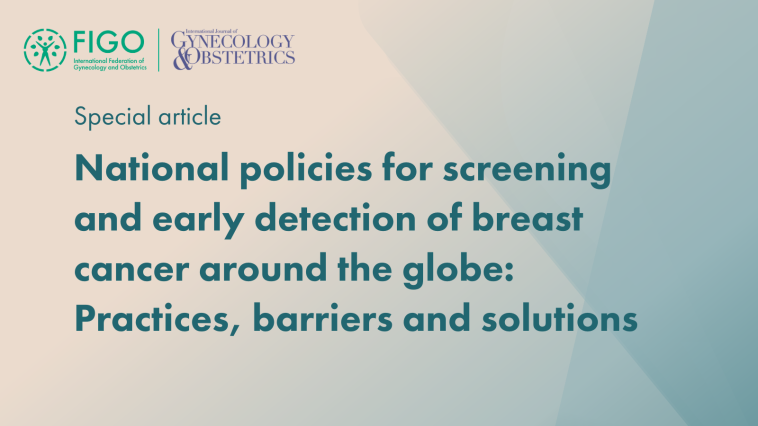Global call to action on breast cancer screening: FIGO highlights urgent need for early detection policies

Breast cancer remains the most common cancer among women worldwide, with over 2.3 million diagnoses and 670,000 deaths in 2022 alone. Despite decades of progress, mortality rates remain unacceptably high, particularly in low- and middle-income countries where access to screening and early detection is limited.
A new publication from the FIGO Committee on Breast Health reviews national screening and early detection policies in seven countries – Chile, Germany, India, Mexico, the Philippines, Senegal and the USA – offering a global perspective on the challenges and solutions needed to improve outcomes.
The article highlights stark inequities: while 96% of European countries have organised, population-based screening programmes, only 21% of African countries report similar initiatives. Women in low-human development index (HDI) countries are more likely to die from breast cancer, with survival rates as low as 40% compared to 90% in high-income nations.
Key barriers identified include lack of infrastructure, limited public awareness, financial constraints and inconsistent screening guidelines. FIGO calls for tailored approaches that match resources – such as clinical breast examinations in low-resource areas – while emphasising innovation through AI-driven risk stratification and personalised screening programmes.
Key topics include:
- National breast cancer population-based screening policies
- Supplemental screening guidelines
- Clinical breast examination
- Breast cancer risk assessment and stratification
- Challenges and possible solutions
The article also supports the WHO Global Breast Cancer Initiative, which aims to reduce breast cancer mortality by 2.5% annually by 2040, potentially saving 2.5 million lives.
Read the full article to explore global practices, barriers and evidence-based solutions for breast cancer screening and early detection.